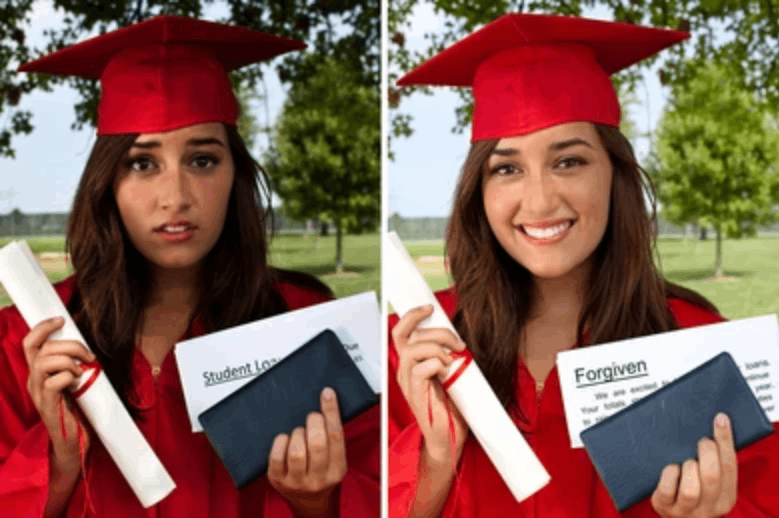Blog > 2017 > September > Student Loan Forgiveness Programs: How To Qualify
Student Loan Forgiveness Programs: How To Qualify
September 15, 2017
The National Student Loan Data System for Students states that students have 6 months after they graduate to find a job before they begin paying back their federal loan. But can the loan be pardoned if a student remains unemployed?
Yes! However, there are select criteria that must be met before the loan can be pardoned or reduced. Loan forgiveness refers to the situation wherein a student does not have to repay all or part of the loan.
How can loans be forgiven?
Loan forgiveness and loan discharge differ with respect to the considerations that could invalidate the debt.
A loan discharge occurs when the student:
Is unable to pay the loan under any circumstances. For instance, death or complete disability
Cannot use the education for which the loan was taken. For instance, the student’s college closes down before the course is completed.
A loan forgiveness occurs when:
The U.S. government, the forgiving party, decides that the student has repaid the community in a manner put down by it, such as public service or teaching.
Students may need legal help to determine which loan forgiveness program they are eligible for, but there are several options they can explore.
The eligibility for student loan forgiveness is influenced by the kind of student loan taken. For instance, if the loan is a federal Stafford loan, a part or all of the loan may be forgiven by participating in medical practice, military service, public service, or volunteer work.
A student must meet these criteria in order to qualify:
Offer to work in Volunteers in Service to America (VISTA), Peace Corps, or AmeriCorps.
Work as a doctor in certain communities or as a teacher in schools dedicated to low-income children.
Serve in nonprofit positions or public interest areas, as directed by the forgiveness program.
Serve in the Army National Guard or other military outfits.
Discharge in bankruptcy
Bankruptcy student loan discharge is not an automatic process. You must prove that you are unable to repay the student loan. Filing for Chapter 7 or Chapter 13 bankruptcy may or may not discharge you from the loan. You must have to prove that repayment of the student loan is going to be extremely difficult for you.
Conclusion
The IRS may treat the forgiven loan amount as income and require the student to pay tax on it. The student should also get written verification of the amount to be forgiven and the situation in which forgiveness is asked for.
At SM Law Group, we can help you with student loan discharge. Call us today for a free consultation!
